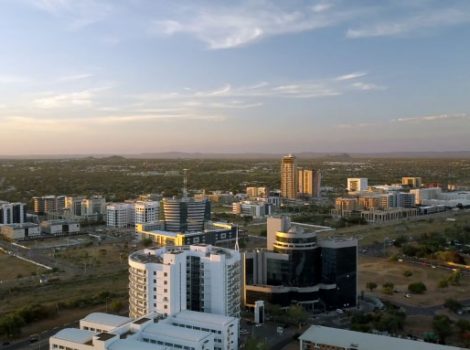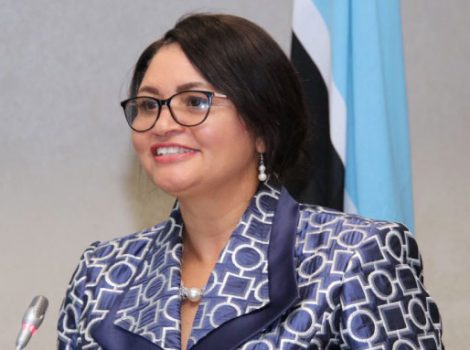
A new review of Botswana’s compliance with international Anti-Money Laundering/Combatting of Financing Terrorism (AML/CFT) standards has positively re-rated three key areas of concern. These previously made up a group of factors that led to the country’s greylisting at the global level.
However, the Eastern and Southern Africa Anti-Money Laundering Group (ESAAMLG), whose recommendations are used by global bodies to list Botswana, does not yet recommend the country’s removal from the adverse rankings. ESAAMLG’s findings in May 2017 of dirty money deficiencies in Botswana led to the country’s greylisting in October 2018 by the Financial Action Task Force (FATF), the leading anti-money laundering agency founded by the world’s richest countries. The FATF’s subsequent recommendations resulted in the European Union blacklisting Botswana and 22 other countries in February 2019, citing the weak systems and saying it “had to make sure that dirty money from other countries does not find its way to our financial system”.
A five-member ESAAMLG team recently assessed Botswana’s request for re-rating of its compliance and upgraded three key areas of concern while noting that more work needed to be done on the remaining recommendations.
“Botswana will remain in enhanced follow-up and will continue to inform the ESAAMLG of the progress made in improving the implementation of its AML/CFT measures,” the team said in a review published recently.
Ratings that were upgraded in the latest review include those related to targeted financial sanctions on terrorism and terrorist financing, targeted financial sanctions related to proliferation and customer due diligence. However, the ESAAMLG team noted that no progress had been made on two other recommendations, whose requirements have changed in the years since the first country’s adverse listing. But local authorities have said the adverse listings fly in the face of multi-ministerial efforts to fast-track more than 20 pieces of legislation to plug loopholes in the country’s financial services sector, combat money laundering and stamp out practices such as tax evasion.
Botswana has formed an AML Task Force at the highest levels of governance that provides a quarterly progress update to the FATF. However, the EU’s most recent update retained the country on its blacklist, alongside several other countries. Michaela Powell Rees, director with Merero Partners, a local boutique advisory firm offering corporate finance, management consulting and risk advisory services told BusinessWeek that Botswana should never have been placed on any adverse list in the first place.
“It was a poorly conceived decision to do so,” she said. “As a result, it has now been ranked with countries which are known to support terrorism and have appalling human rights records.
“Meanwhile, there are some countries which have met many of the FATF standards, and however, have shocking human rights records, are not democracies and have very high levels of corruption, all of which undermine the effectiveness of AML/CFT systems.”
Rees said what Botswana needed was assistance and time to implement change.
“And it is doing that. But those who govern Botswana or who manage AML/CFT regulators must understand that they need to demonstrate effective leadership.
“That is not displayed by issuing instructions that are impossible to implement or which are contradictory.
“Both public and private sector need to establish ways of learning from each other and working together to implement the Financial Intelligence Act and Financial Intelligence regulations,” she said.
Rees added that to be removed from the greylist, Botswana must focus on developing effective AML/CFT systems. She said the country should implement the law by supervisory authorities, specified parties and accountable institutions to develop reasonable measures to identify and prevent financial crime.
“This can only be done by designing systems which are based on a sound risk-based approach. “Unfortunately, it appears that some supervisory bodies are not aware of the steps that must be taken to implement AML/CFT systems that can detect and prevent financial crime, particularly money laundering,” she said.
The director also said having just one supervisory body being solely responsible as an AML/CFT regulator for the entire professional sector, and not being able to guard against “cookie-cutter” template policy documents which are not based on a risk-based assessment, presented impediments to the effectiveness of AML/CTF and also created systemic issues.
“What these actions indicate is that regulators, specified parties and accountable institutions lack the capacity to implement the laws.
“Capacity is not something that can be developed overnight. It takes time.
“And it cannot be achieved by completing basic AML/CFT courses run by overseas institutions which have no or little relationship to the laws of Botswana.
It is the local firms, with local experiences and insights that may be enhanced by experiences drawn in from offshore where necessary, who are better placed to spearhead such efforts.”
Botswana’s continued negative listing by the global bodies has dulled the country’s
much-hailed investment climate and carefully curated brand as the Jewel of Africa, at a time when COVID-19 is already depressing the economy and countries’ competitiveness. The listing increases the cost of local financial institutions doing business with international banks and other organisations due to the higher due diligence that will be applied to them. There are also delays in funds being transferred to and from Botswana, due to the need for greater due diligence.
“Needless to mention, the greylisting overshadows other positive aspects of Botswana, for example, it being a stable democracy with the lowest corruption in Africa and even one of the lowest in the world even compared to some European countries.
“It is a reputation that it does not deserve,” Rees said.
Source: http://www.mmegi.bw/index.php?aid=89188&dir=2021/march/19



